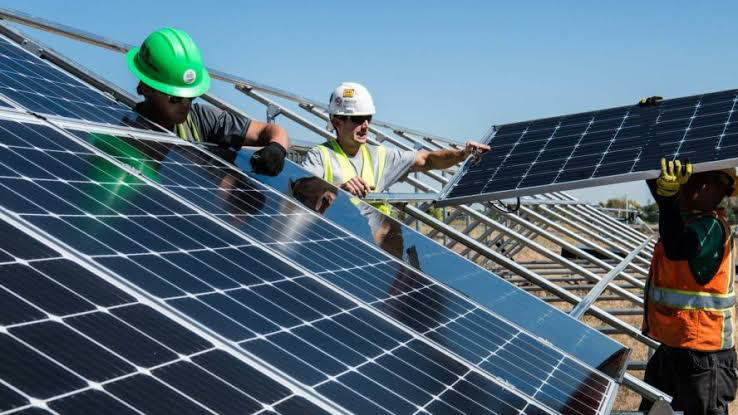Construction of a major 200 MW solar power facility in Mali has begun, marking a big investment in renewable energy for the West African country by Russia’s Novawind. This large-scale project, which is only 30 kilometers from the capital Bamako and close to Sanankoroba, is a partnership with Rosatom, a Russian state company renowned for its nuclear know-how.
In an official opening ceremony last Friday, Colonel Assimi Goïta, the Transitional President of Mali, installed the first solar panel, indicating the beginning of what seems to be a game-changing energy project for the country. Spanning almost 300 hectares, the solar facility is expected to cost more than €200 million ($217.2 million) and is intended to greatly increase Mali’s energy production.
Bintou Camara, Mali’s Minister for Energy and Water, emphasized the strategic placement of the plant and its expected positive impact on the nation’s energy infrastructure. The Sanankoroba Solar Project is not just a standalone facility but part of a broader initiative to introduce multiple solar projects across the country, as stated by President Goïta. After its operational lifespan of 20 years, the facility will be transferred to the Malian Ministry of Energy and Water.
This solar project is in line with larger Russian-Mali cooperation initiatives, particularly in the peaceful application of nuclear energy. Following Minister Camara’s meeting with Rosatom representatives in October of the previous year, a Memorandum of Understanding covering a variety of topics related to nuclear technology and Mali’s infrastructure development was produced.
Additionally, Mali is actively taking part in international and regional projects to improve its electrical infrastructure. Mali accepted the Desert to Power National Roadmap by the African Development Bank in 2020, with ambitious goals to increase solar capacity to 399 MW by 2025 and 977 MW by 2030. This program is a component of a bigger scheme that spans 11 African nations and aims to provide energy to thousands of households, especially in rural areas.
Furthermore, the World Bank intervened with a significant $157 million grant from the International Development Association (IDA) to enhance Mali’s electrical system’s dependability and effectiveness. Along with supporting the integration of renewable energy sources, this investment aims to help Mali achieve its strategic targets of increasing access to electricity to 70% by 2025 and planning additional increases for 2030 and 2036.



